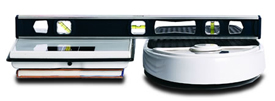Scoliosis

Scoliosis seems to mainly affect girls between the ages of 8 to 18.
Scoliosis is an abnormal sideways curvature of the spine. It begins as a postural distortion and may become a permanent deformity. Allowed to advance, it may interfere with the lungs, heart and many other vital organs.
Three Causes
- Congenital genetic predisposition
- Habitual behavioral routines
- Idiopathic unknown cause
Regardless of cause, early detection can be helpful.
Obvious Clues
An alert parent may notice that a high shoulder or low hip make clothing fit poorly. Or uneven shoe wear offers a clue. Back and leg pains may develop but are often dismissed as “growing pains.”
Wait and See?
Allowed to run its course, scoliosis may often worsen. Severe cases may involve unsightly bracing or surgery that attaches steel rods, forcing the spine to straighten.
Natural Approach
A schedule of specific chiropractic adjustments may help improve the function and structure of the spine. As muscles are retrained and strengthened, posture may improve.
Bring your child in so we can discuss your concerns and explore the possibilities.
Frequently Asked Questions:
- Isn’t a certain amount of sideways curvature normal? Any type of sideways curvature is abnormal. From the back, the spine should appear straight. When scoliosis is present, there are usually two curves. A primary curve in one direction and a compensatory curve in the opposite direction.
- Isn’t scoliosis caused by a lack of calcium? No. However, there are a growing number of people who believe uncorrected spinal damage from the birth process may be involved. Some theorize that “walkers” may prematurely interrupt the crawling stage so essential for proper spinal development.
- Do heavy back-packs cause scoliosis? Not necessarily, however this is a growing concern. Make sure your son or daughter use both shoulder straps on their back-packs so the weight is evenly distributed. Weigh their bag. Make sure it doesn’t exceed 10% -15% of their body weight.




